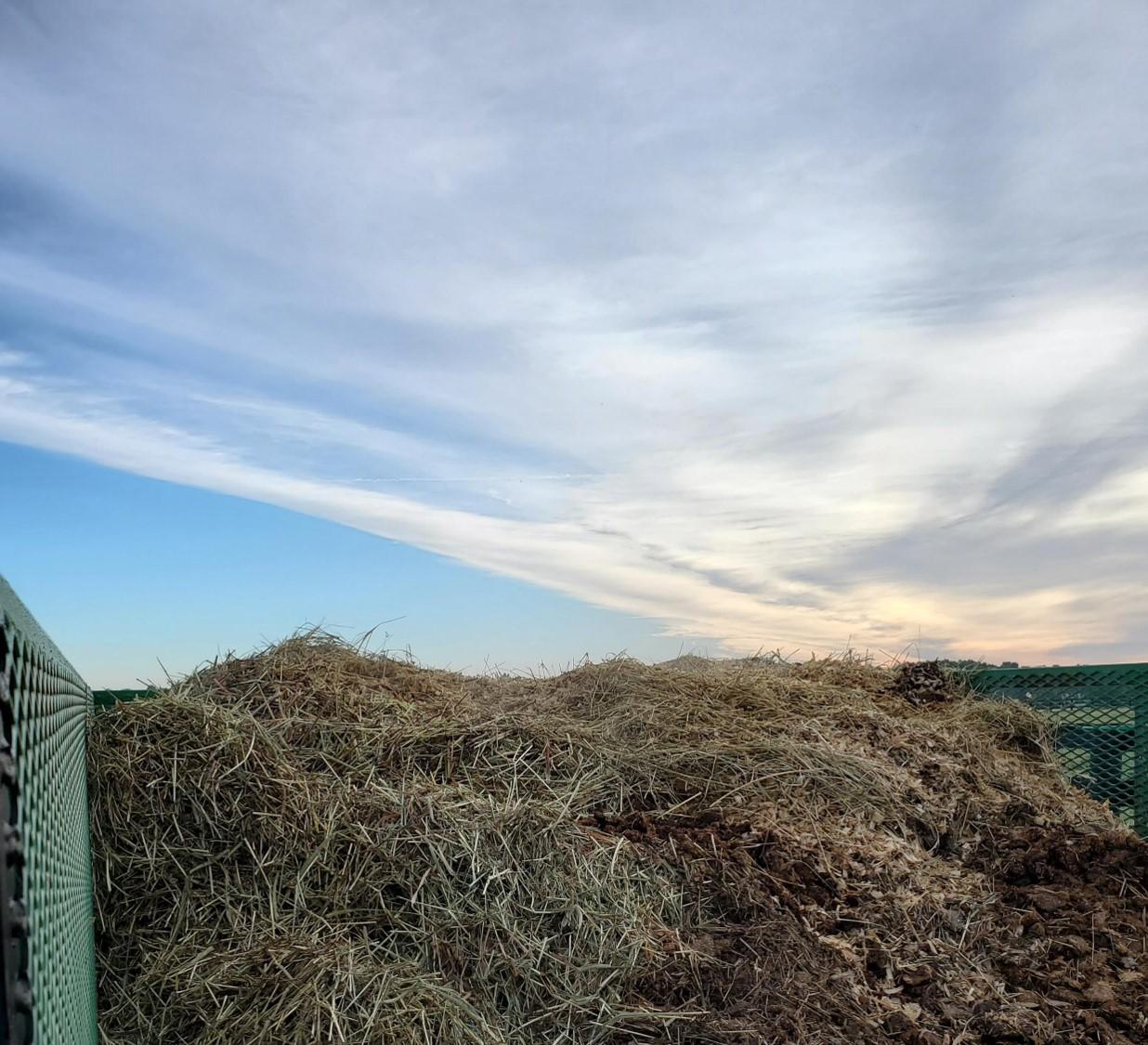2020 Sustainability Challenge Grant Program: Aerated Manure Compost Facility for the Smaller Horse Farm Operation

A single, average sized horse produces an estimated 9,400 kg or 20,800 lb. of feces and stall bedding waste material (manure) per year(1). This amount of manure adds up quickly as the number of horses housed on a farm increase.
In certain regards, larger farms have more options to deal with manure. These farms tend to have more space available for responsible land application of manure or they generate the quantities of manure that is of interest to commercial composting companies, who are willing to collect these quantities of manure at minimal cost.
In contrast, smaller farms, housing six or fewer horses, typically do not have the associated acreage to support responsible, repeated land application of raw manure, yet the amount of manure generated may still not be sufficient to make it financially feasible for composting companies to collect at low cost. This leaves the smaller horse farm owner with the choice to either pay to have the manure hauled away or to compost the manure on farm. However, composting on farm can be both daunting and labor intensive, while manure removal services can be costly, especially if the horses are kept for recreational purposes only. In some cases, this leads to the over-application of manure on land as a way to reduce the frequency of manure removal services. Over-application of manure, however, becomes an environmental threat to our surface and ground water quality in Kentucky and beyond.
Through funding made available by the 2020 Sustainability Grant Challenge, a project being conducted by researchers in the University of Kentucky College of Agriculture, Food and Environment aims to design and install a cost-efficient aerated composting facility at the UK Maine Chance Horse Unit (North Farm), designed to handle manure from four to six horses. By installing an aerated compost bin, as opposed to a traditional, non-aerated bin, researchers aim to reduce the labor involved in turning the piles, making it a more attractive option for smaller horse farm owners.
Why would a farm owner be interested in composting, especially if there are additional costs to install a compost bin? Composting reduces the total manure mass and volume(2), which can lower costs associated with transport off the farm. Successful composting also neutralizes seeds from weeds and pathogens and parasites that may be present in raw manure, creating a stable product to apply to pastures(3). In addition, compost has been shown to result in less nutrient leaching compared to raw manure, reducing the overall environmental impact of compost(4). An additional benefit of composting is that the compost generated on farm can potentially be sold as a value-added product, as opposed to having to pay someone to take it before it was composted.
The project is a collaborative effort by UK College of Agriculture, Food and Environment researchers Mieke Holder, PhD, assistant professor; Bob Coleman, PhD, PAS, Dip. ACAN, associate professor and equine extension specialist; Laurie Lawrence, PhD, professor; and Ashley Fowler, PhD, all from the Department of Animal and Food Sciences; as well as Morgan Hayes, PhD, PE, assistant extension professor in the Department of Biosystems and Agricultural Engineering; and Jamie Dockery, Fayette County Extension agent for horticulture education. These team members contribute different expertise to the project from multiple departments.
Its focus is on creating a facility that will be of use for hands-on teaching experiences, environmental impact-oriented research projects and extension events where farm owners can have a full-scale facility to look at and compare to what they may want to install at home. Finally, the compost generated from the facility will be made available to the community for use in community gardens, showing how UK-owned Maine Chance horses can contribute to a more sustainable local community.
Funding for this project is provided by the Sustainability Challenge Grant, a collaborative effort between the UK Office of Sustainability, the President's Sustainability Advisory Committee and the Tracy Farmer Institute for Sustainability and the Environment. For more information, please see home page for the grant website.
Mieke Holder, PhD, assistant professor in the Department of Animal and Food Sciences at the University of Kentucky, provided this information.
References listed:
Komar et al., 2012
Komar et al., 2012
Bernal et al., 2009
Fowler et al., 2020
